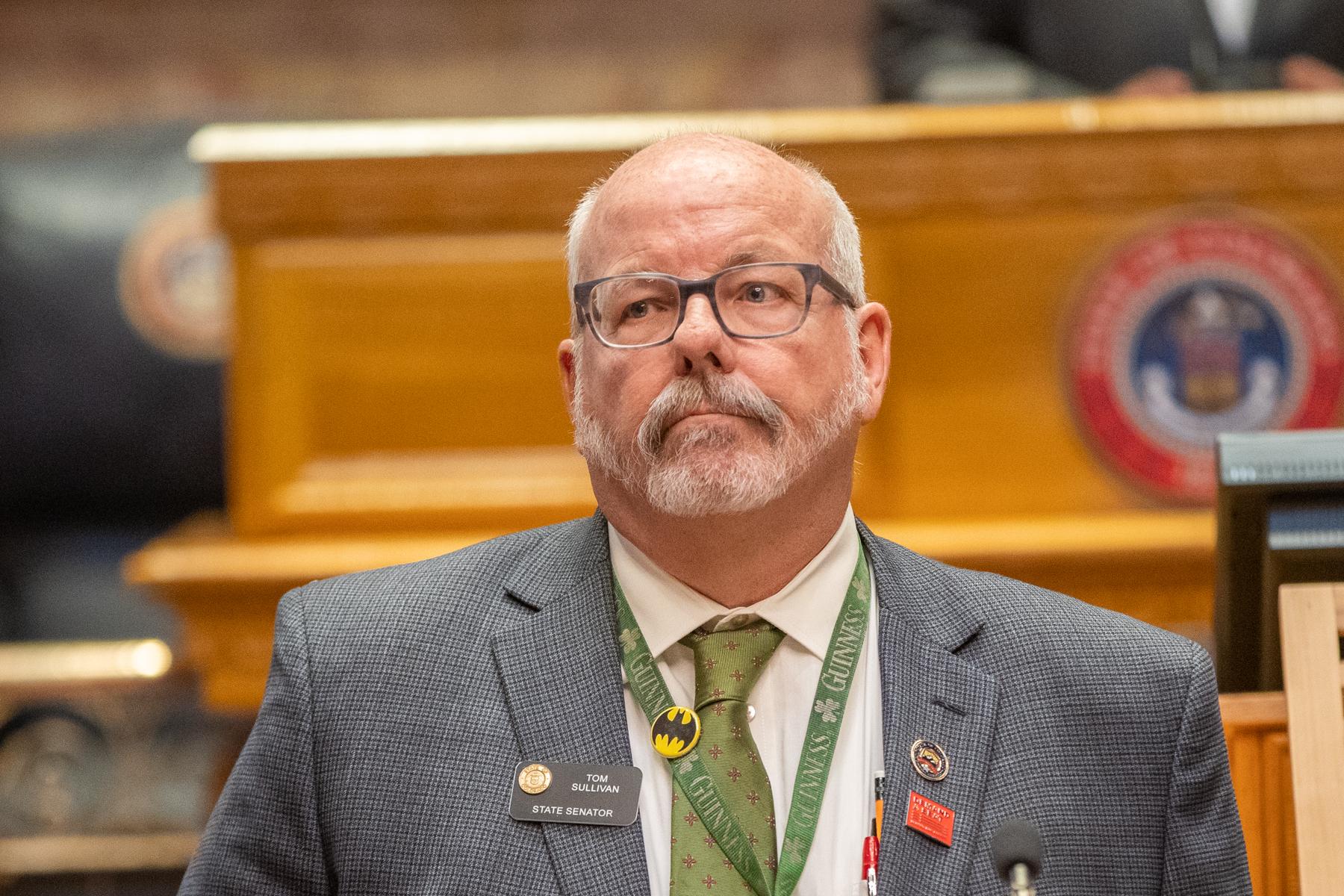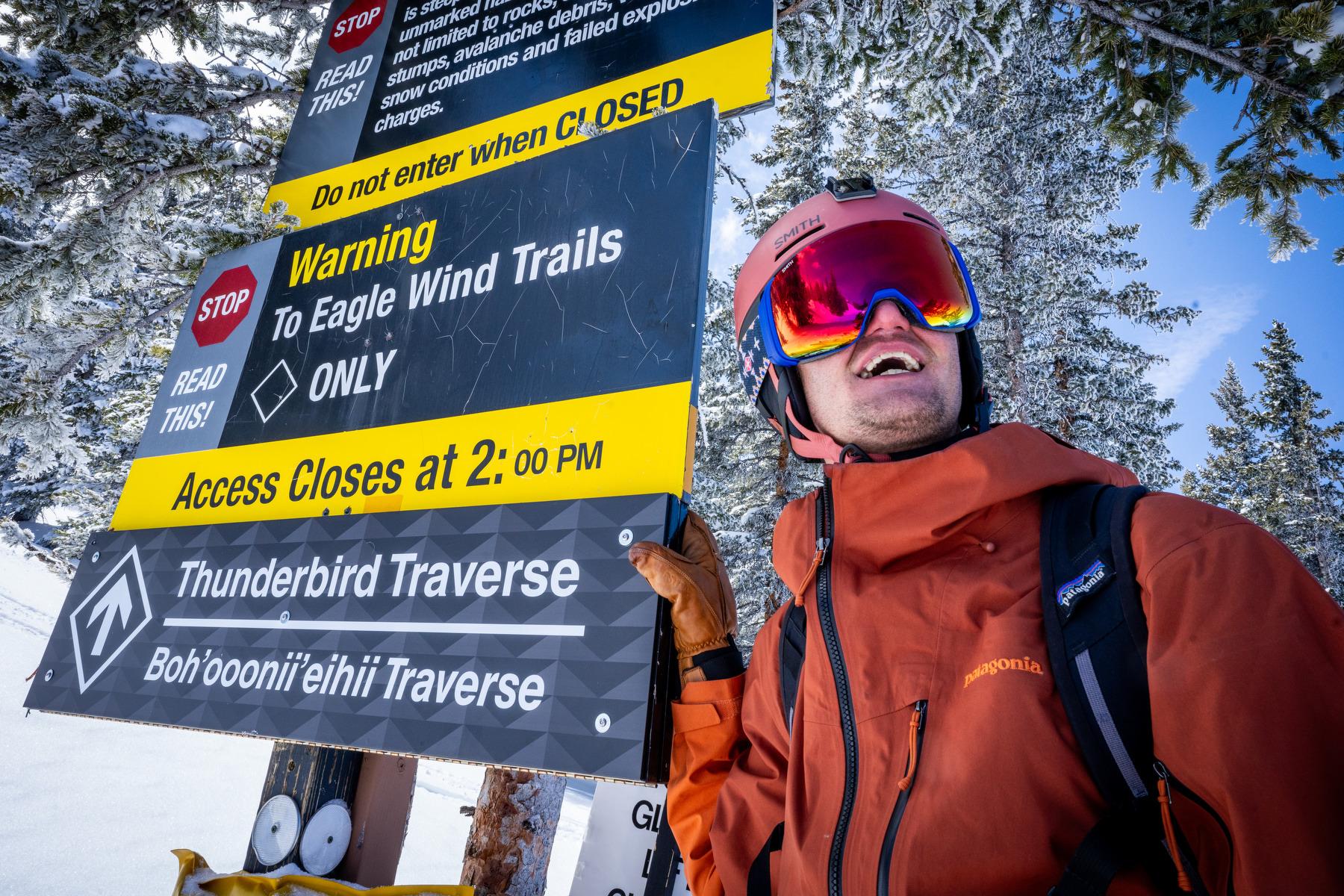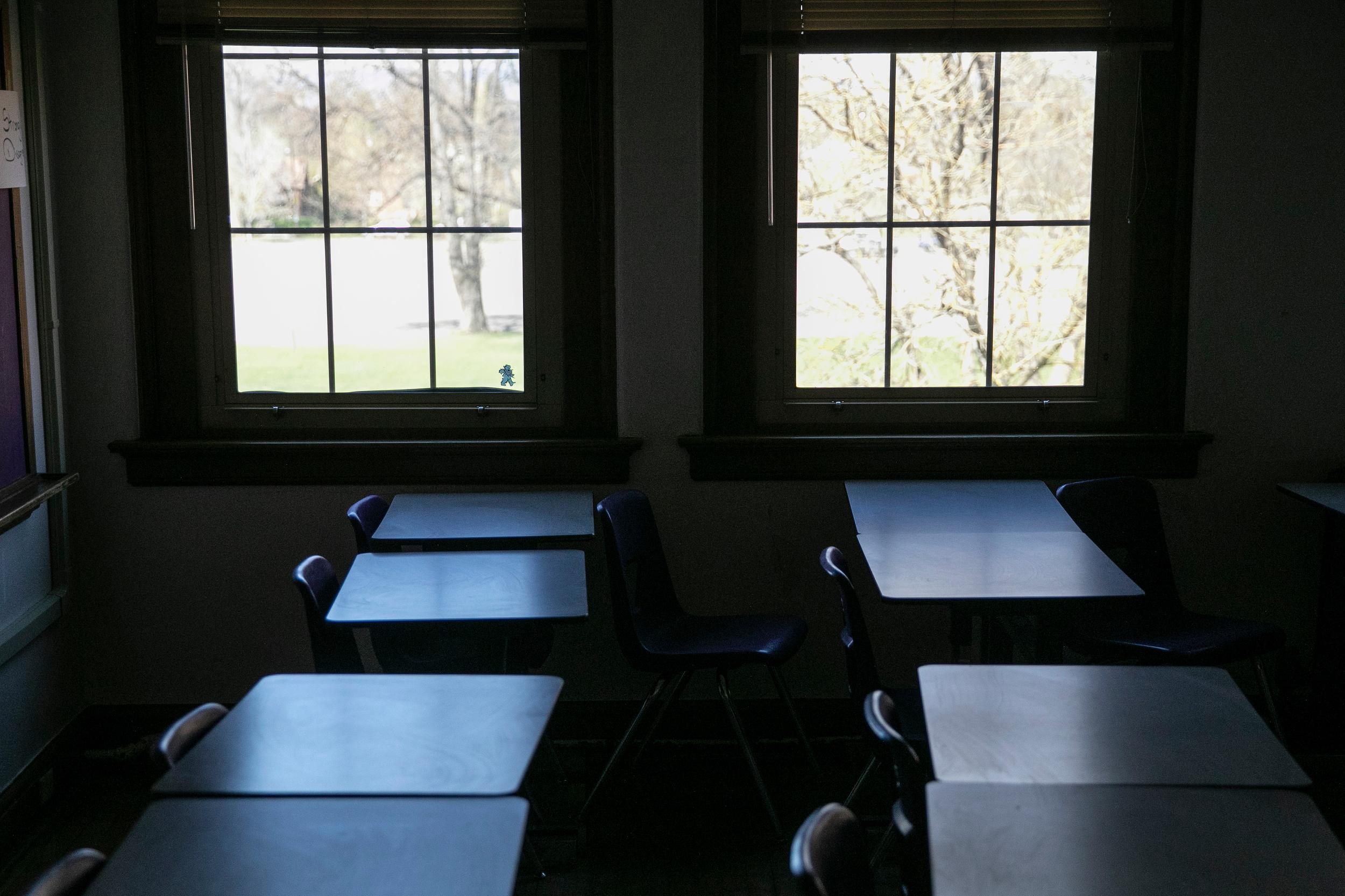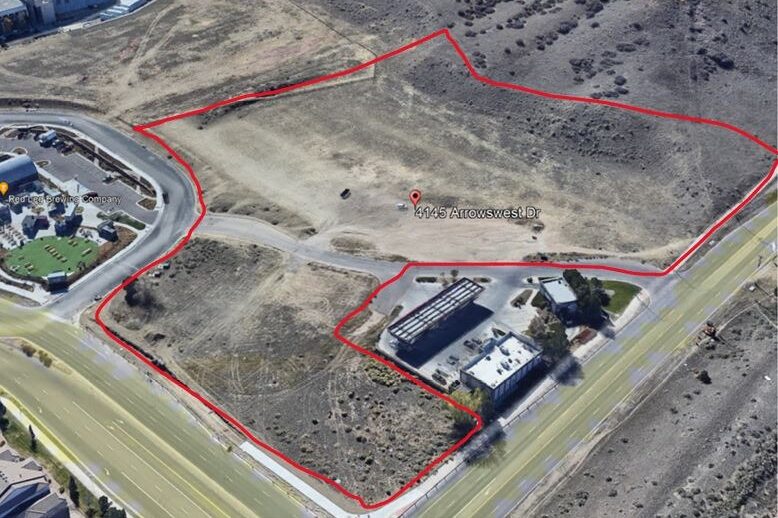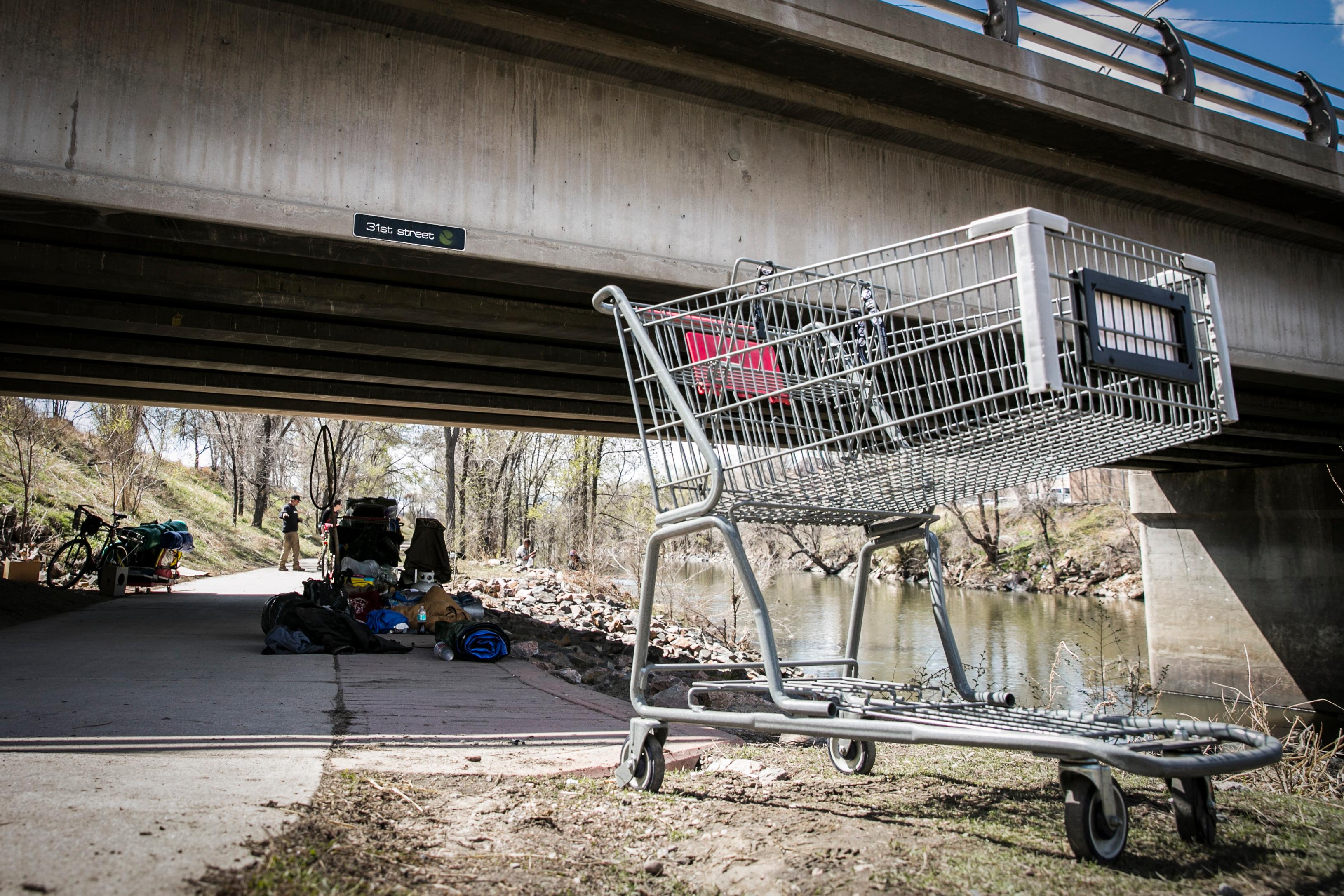
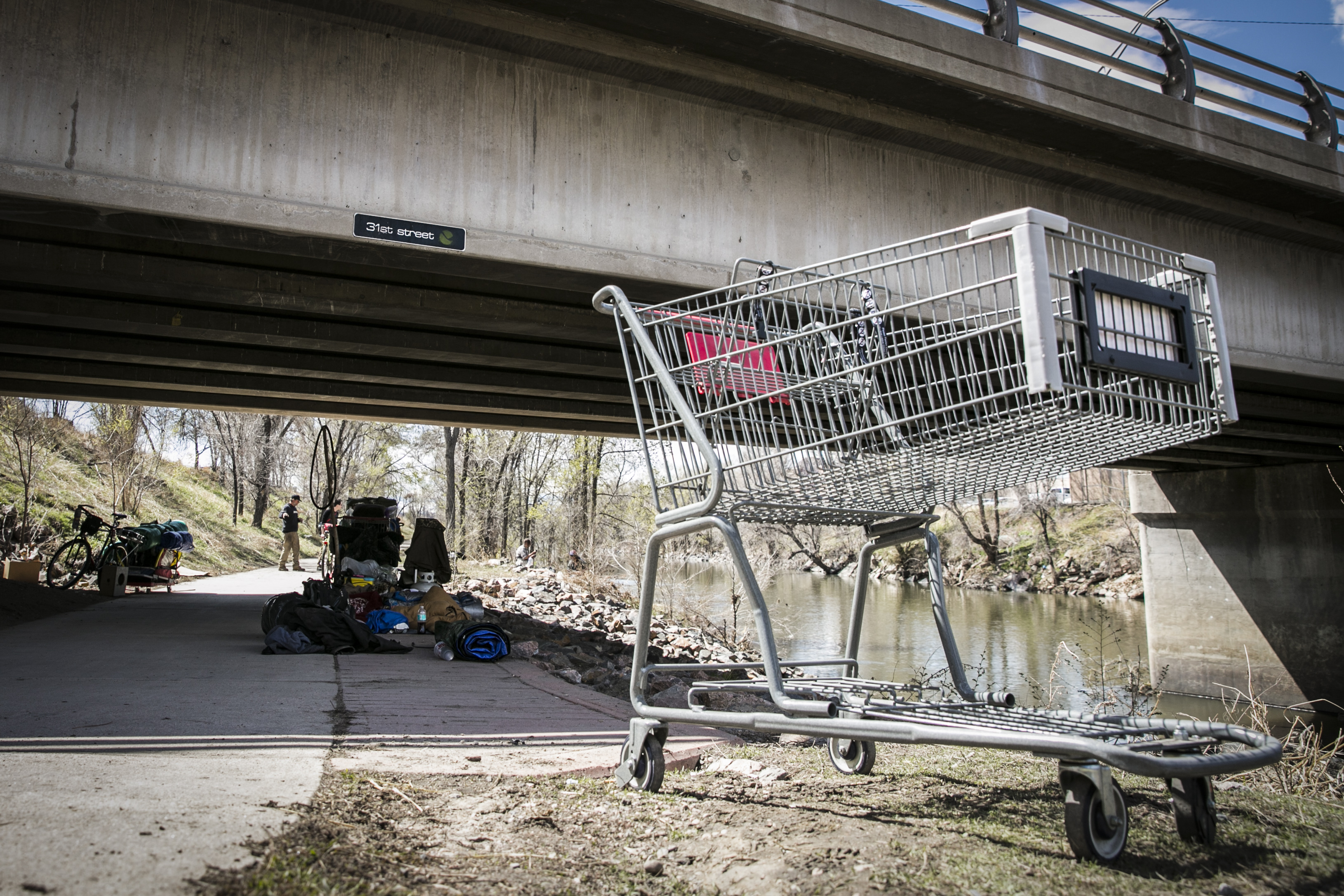
Posted 1 p.m. | Updated 5:30 p.m.
What effect did Colorado’s legalization of recreational marijuana in 2012 have on homelessness here?
It’s a question that’s been asked, in one form or another, by longtime Coloradans, new transplants, police officers, social service providers, and everyone in between in recent years as recreational marijuana dispensaries have popped up around the state.
There isn’t much data to give a good answer. And that lack of clarity has led to speculation that masses of people experiencing homelessness, sometimes called “urban travelers,” have moved to Denver solely to get stoned.
But experts told the Denver City Council Monday that while anecdotal stories may support that theory, existing data, while problematic, doesn’t. Donald Burnes, executive director of the University of Denver’s Burnes Center on Poverty and Homelessness, pointed to the most recent annual survey of the metro area’s homeless population.
“There has not been a substantial increase in people here ...who have identified places outside of Colorado as the last permanent place of residence,” Burnes said. “This, frankly, is the best data that we have.”
Homelessness can more accurately attributed to other factors, the experts said. Tim McGettigan, a professor of sociology at Colorado State University Pueblo, suggested the uptick in homelessness there could have more to do with the local power company’s high rates. He cited data from the Colorado Sierra Club.
“And if you cut off utilities in the cold of winter, the heat of summer, to 7,000 families in one community, you will see dramatic increases in homelessness,” McGettigan said. “Blaming that increase on cannabis is spurious at best.”
A spokeswoman for Black Hills Energy confirmed that more than 7,000 service agreements were disconnected over non-payment in 2016, and 5,134 of those were restored. But she added that the company's old method of counting service agreements inflated the figures.
“A customer can have multiple properties or meters on their property, and those disconnects were counted as more than one service agreement under a single customer,” Julie Rodriguez, spokeswoman for Black Hills Energy said in an email. The company now tracks disconnects by individual customer, she said.
Rodriguez also noted that the company does not suspend service when forecasted high temperatures are not expected to exceed 35 degrees for 48 hours, and offers assistance programs and payment options. “We never want to disconnect a customer, and disconnects are a last resort,” she said.
But the leader of a nonprofit in Pueblo told KOAA last year that high utility costs are the “number one reason” families there are becoming homeless.
Denver City Councilwoman Robin Kniech seized on that connection, and made her own to another pressing issue in Denver: affordable housing.
“In your case it was utilities,” she said to McGettigan. “In our case it's because of housing prices. Our failure is the cause of homelessness.”
McGettigan said marijuana could be connected to homelessness in a less obvious way. The economic boom the state’s been in for the last few years, or “green rush,” as McGettigan called it, has driven up real estate prices as people move here.
“They are crowding the state, grabbing up every piece of affordable real estate they can as fast as they can,” McGettigan said. “So if you want to talk about cannabis and homelessness, there are things to talk about. But this idea that stoners suddenly become homeless isn't true.”
To that end, Burnes said it may be time for policy makers to stop worry about whether cannabis causes homelessness. “In some respects the question is irrelevant,” he said. “Cannabis is here to stay. We all like the revenue. And it seems to me the more important question for all of us to consider is how do we spend the revenue?”
His suggestion: More help for school-age children who are homeless.

